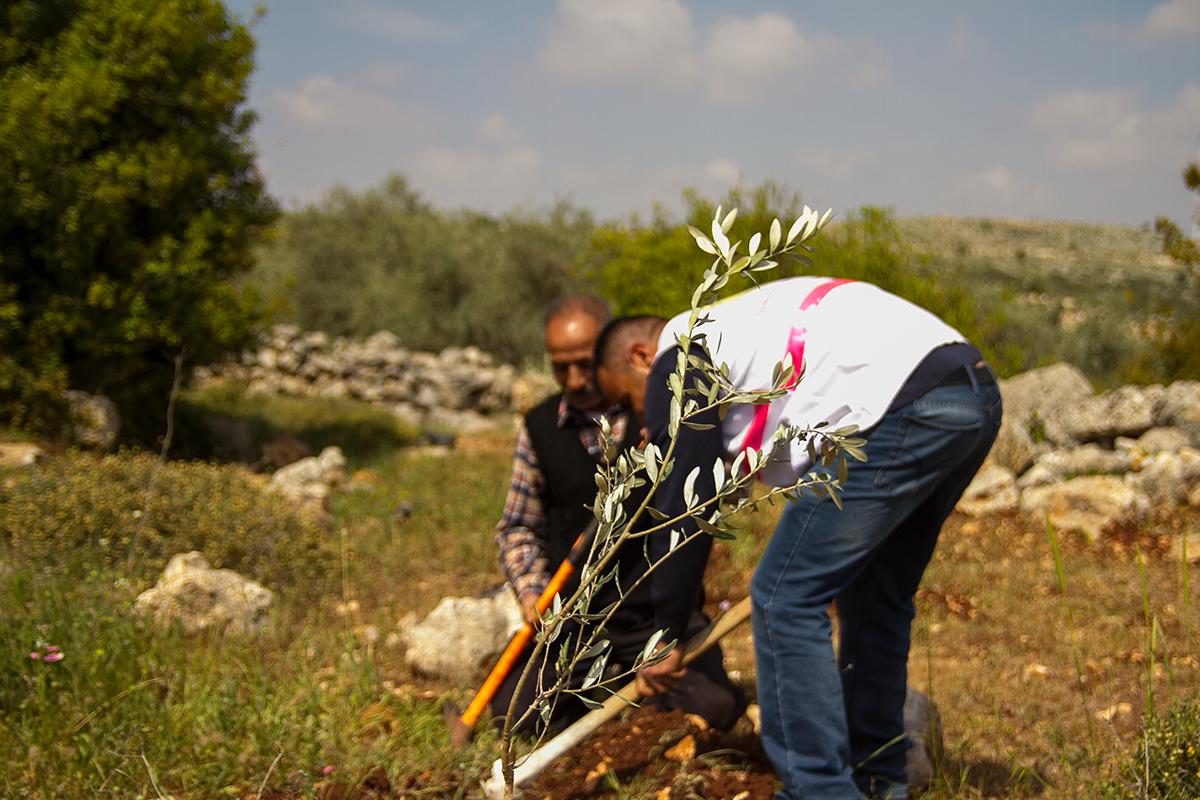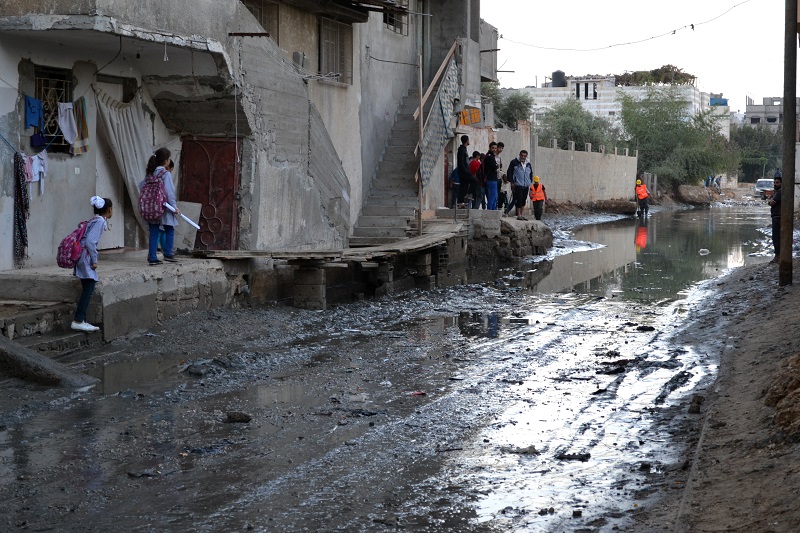Tag: Sewage
-
Olive tree planting in the village of Bruqin
9th April 2017 | International Solidarity Movement, Ramallah team | Bruqin, occupied Palestine On 8th April 2017 an ISM team joint Abu Skander, a farmer from the village of Bruqin, Salfit district, to plant 30 new olive trees on his field within the village. The village is located close to the illegal Israeli settlement of Bruchin and…
-
Sewage flows in Gaza streets for 18 hours a day
21st November 2013 | International Solidarity Movement, Rosa Schiano | Gaza, Occupied Palestine The lack of electricity in the Gaza Strip is also creating an environmental crisis. Wastewater treatment facilities have stopped due to the lack of fuel. In the Zeitoun neighborhood, in the east of Gaza City, a sewage pumping station has stopped working…
-
Salfit continues to suffer from illegal settlement sewage
18th April 2013 | International Solidarity Movement, Salfit, Occupied Palestine By Team Nablus The agricultural district of Salfit, about 25 miles north of Jerusalem, is facing health and environmental problems throughout its villages because of a constant stream of sewage from nearby illegal Israeli settlements, most notably Barkan and Ariel settlements which also hold illegal…


